DANE ROGERS PLANT-BASED HIGH PROTEIN COOKBOOK FOR ATHLETES: Maintain a Low-Carb Diet for Athletic Performance, Eating Vegan. A Nutrition Guide, 100+ Veggie Recipes and a 30-Day Meal Plan to Fuel Your Workout. Copyright 2020 - All rights reserved. The content contained within this book may not be reproduced, duplicated or transmitted without direct written permission from the author or the publisher. Under no circumstances will any blame or legal responsibility be held against the publisher, or author, for any damages, reparation, or monetary loss due to the information contained within this book. Either directly or indirectly.
Legal Notice: This book is copyright protected. This book is only for personal use. You cannot amend, distribute, sell, use, quote or paraphrase any part, or the content within this book, without the consent of the author or publisher. Disclaimer Notice: Please note the information contained within this document is for educational and entertainment purposes only. All effort has been executed to present accurate, up to date, and reliable, complete information. No warranties of any kind are declared or implied.
Readers acknowledge that the author is not engaging in the rendering of legal, financial, medical or professional advice. The content within this book has been derived from various sources. Please consult a licensed professional before attempting any techniques outlined in this book. By reading this document, the reader agrees that under no circumstances is the author responsible for any losses, direct or indirect, which are incurred as a result of the use of information contained within this document, including, but not limited to, errors, omissions, or inaccuracies. TABLE OF CONTENTS
Introduction

A nyone can set goals for themselves, but how many of those goals end up being accomplished? Often, we set goals without actually knowing what we need to accomplish those goals. It's like getting ready to leave for a trip and having no idea what to pack, no idea what you will need.
And what ends up happening many times is that, because we don't know what we may need on our trip, we end up packing as many things as possible and then using only 10% of them. In doing so, we've wasted both time and energy for something that only ended up weighing us down. Similarly, with nutrition, many foods may not be what you need for your particular journey toward your goals and thus may end up doing little more than weighing down your "food suitcase". There are also many products on the market which, if not exactly what you need for your particular journey, may not only weigh you down but may actually be harmful to your health and even make it impossible for you to meet your goals or go on your journey at all. This is why so often we set high and idealistic goals but fail when it comes to achieving them.
Chapter 1:
What Is A Plant-Based Athlete ?

M any athletes believe that the consumption of animal products is necessary to get the right nutrients to perform optimally.
Chapter 1:
What Is A Plant-Based Athlete ?

M any athletes believe that the consumption of animal products is necessary to get the right nutrients to perform optimally.
However, this is not true. Recent research has proven differently; it is also perfectly possible to extract these nutrients from plant-based foods. Many professional athletes have switched to a vegan diet and continue to perform at the highest level, or sometimes even get better. Most vegans have eaten meat in the past, but the need to eat meat quickly disappears with the acceptance of new information, and a change of mindset. The transition to plant-based foods can be quite simple when you realize that what you have been told about is not true. Getting enough protein is not a problem for a vegan, but you will have to increase your nutritional intake.
For an athlete, food must serve as fuel for the body that contributes to optimal performance. This also includes recovery after training. Athletes with a balanced diet can lift more weight, exercise longer, recover faster, and thus train more. Hard-working muscles need glycogen, a type of carbohydrate that is stored in the liver and muscles. , which are mainly derived from plants, feed our brain with its favorite fuel: glucose. Glucose helps us during intensive training, and it helps us to concentrate.
Diets consisting of meat and other animal products provide a lot of fats, which counteract the benefits of carbohydrates. Fats cannot provide the rapid energy that is needed during intensive exercises. It doesn't matter if you run a long distance, play football or do squats.
Chapter 2:
Protein Requirements

A thletic men and women need more protein than other people do. Frequently when animal products are wiped out from the diet, it is a massive part of the protein. Without sufficient dietary protein, the sugar taken in will enter the circulation system quicker, causing insulin levels to rise rapidly (spike), and afterward decay (crash).
With protein added to every meal, a "sugar crash" will not happen. Protein will supplement the starch, permitting it to enter the circulation system at a consistent rate, hence deferring the beginning of craving and supporting energy levels. Protein, an important piece of an athlete's diet, is utilized in the rebuilding procedure of muscle tissue stressed by training. During aerobic exercise at a low pulse (60-70% of highest), fat is the body's essential fuel source (90%) with protein second (10%). A six-hour-ride, for instance, would burn only protein as fuel for 36 minutes. If the dietary protein needs are not met for an athlete, muscle tissue will be catabolized; thus, the quality will decrease.
A 4:1 starch to protein proportion appears to yield the best muscle glycogen recuperation results. A modest quantity of protein (25%) joined with a high glycemic starch (sugar) has appeared to improve recuperation over the ordinary "sugar only" approach. Supplemented soy drinks are a good supplier of this proportion. Once animal products are disposed of, this is an enormous bit of the fat. The dairy business estimates fat as the level of volume, not as a level of calories. For instance, 2% milk is, in actuality, 33.5% fat.
Eliminating all excess out of the diet is not the goal, albeit saturated fat should be limited for ideal performance. A low-fat diet is OK for a low to reasonably dynamic individual. Nevertheless, an exceptionally dynamic individual, particularly an athlete who follows a plant-based diet, will profit by adding high-quality fats to his or her meals. Likewise, with protein, fat helps with easing back the rate at which the sugar enters the circulation system, in this manner, giving supported, predictable energy. Dietary fat likewise helps the absorption of fat-solvent nutrients; for example, vitamin E. Vitamin E is a fantastic cancer prevention agent that will help stimulate the recuperation procedure.
Cold-pressed oils, for example, flax and hemp, are essential to the vegan athlete.
Chapter 3:
Micro and Macronutrients For
The Plant-Based Athlete


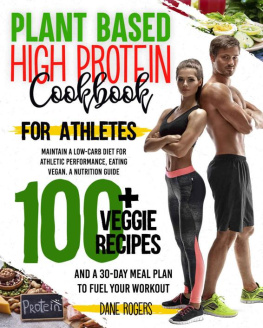
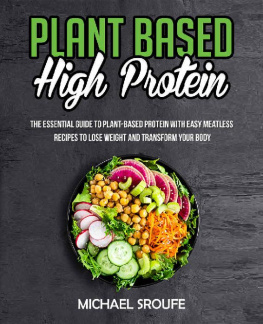
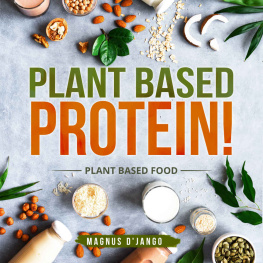

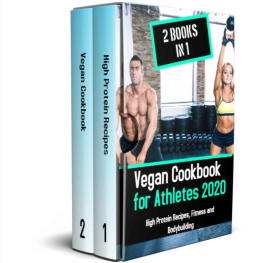
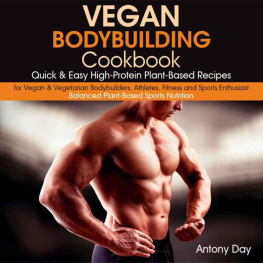
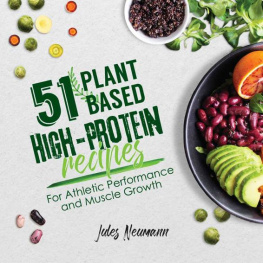
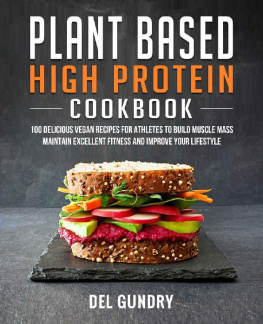
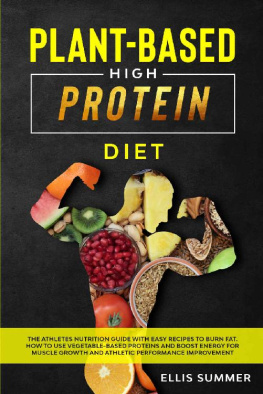
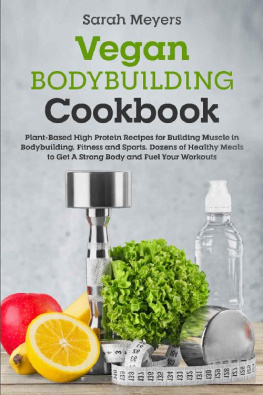
 A nyone can set goals for themselves, but how many of those goals end up being accomplished? Often, we set goals without actually knowing what we need to accomplish those goals. It's like getting ready to leave for a trip and having no idea what to pack, no idea what you will need.
A nyone can set goals for themselves, but how many of those goals end up being accomplished? Often, we set goals without actually knowing what we need to accomplish those goals. It's like getting ready to leave for a trip and having no idea what to pack, no idea what you will need.  M any athletes believe that the consumption of animal products is necessary to get the right nutrients to perform optimally.
M any athletes believe that the consumption of animal products is necessary to get the right nutrients to perform optimally.  A thletic men and women need more protein than other people do. Frequently when animal products are wiped out from the diet, it is a massive part of the protein. Without sufficient dietary protein, the sugar taken in will enter the circulation system quicker, causing insulin levels to rise rapidly (spike), and afterward decay (crash).
A thletic men and women need more protein than other people do. Frequently when animal products are wiped out from the diet, it is a massive part of the protein. Without sufficient dietary protein, the sugar taken in will enter the circulation system quicker, causing insulin levels to rise rapidly (spike), and afterward decay (crash). 